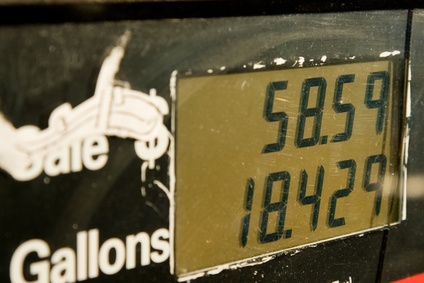
Many drivers look to saving fuel as a means of getting the most bang for their buck. There are many practices relating to smart purchases, vehicle maintenance and driving habits that help drivers get the most out of the fuel used in the vehicle. If drivers use a few of these techniques throughout the lifetime of their vehicle, frugal gas consumption can counteract consistently rising gas prices. These practices can be done with most vehicles.
Research miles per gallon (mpg) when deciding to buy a new car. The higher the mpg is, the longer you are able to drive without having to add more fuel to your car.
Ask your dealer questions. You'll need to verify the correct type of fuel the car uses (regular or premium). If your main goal is to save money, this will play a large factor, because premium gas is markedly more expensive than Regular, which could be counterproductive to your goals.
Buy a hybrid or electric car. There are many more on the market now, and many state and federal agencies offer rebates.
Inflate your tires fully. Under-inflated tires are one of the biggest fuel burners. Your car doesn't get optimum gas mileage when the tires are not inflated. This also wears down the tread of the tires, posing a potential safety hazard.
Remove any excess weight from your vehicle. People constantly pack their trunk with objects they don't need. Keep your car as lightweight as possible, because the added weight makes your car work harder, and in turn burn more gas. Only keep essentials, such as jumper cables, a tire jack and a spare tire in your car for extended periods of time.
Get your engine tuned by a mechanic. When your engine is at its best condition it will burn much less gas.
Use cruise control or coast whenever possible. Pushing your foot to the accelerator burns gas unnecessarily at times. Driving at high speeds burns gas faster than obeying the speed limit, so be mindful of your speedometer.
Avoid sudden stops and starts. This overexertion will take its toll on your engine, and burn more gas.
Carpool to work or consolidate all or most of your errands into one trip. By making frequent trips throughout the week, you burn more gas. If you pick certain days to get your groceries, mail or visits out of the way, you will get things done in one trip instead of burning fuel by taking multiple trips.